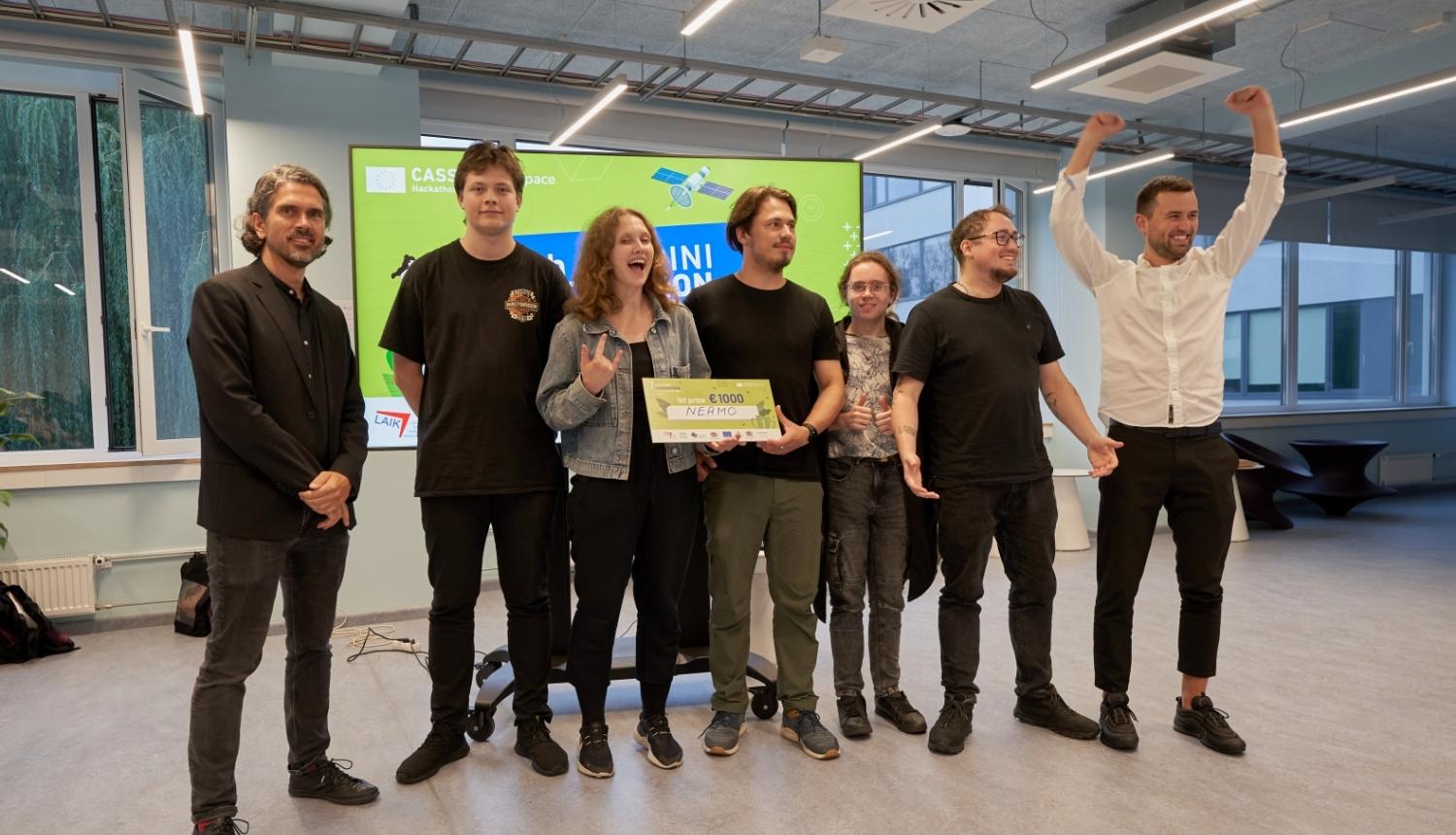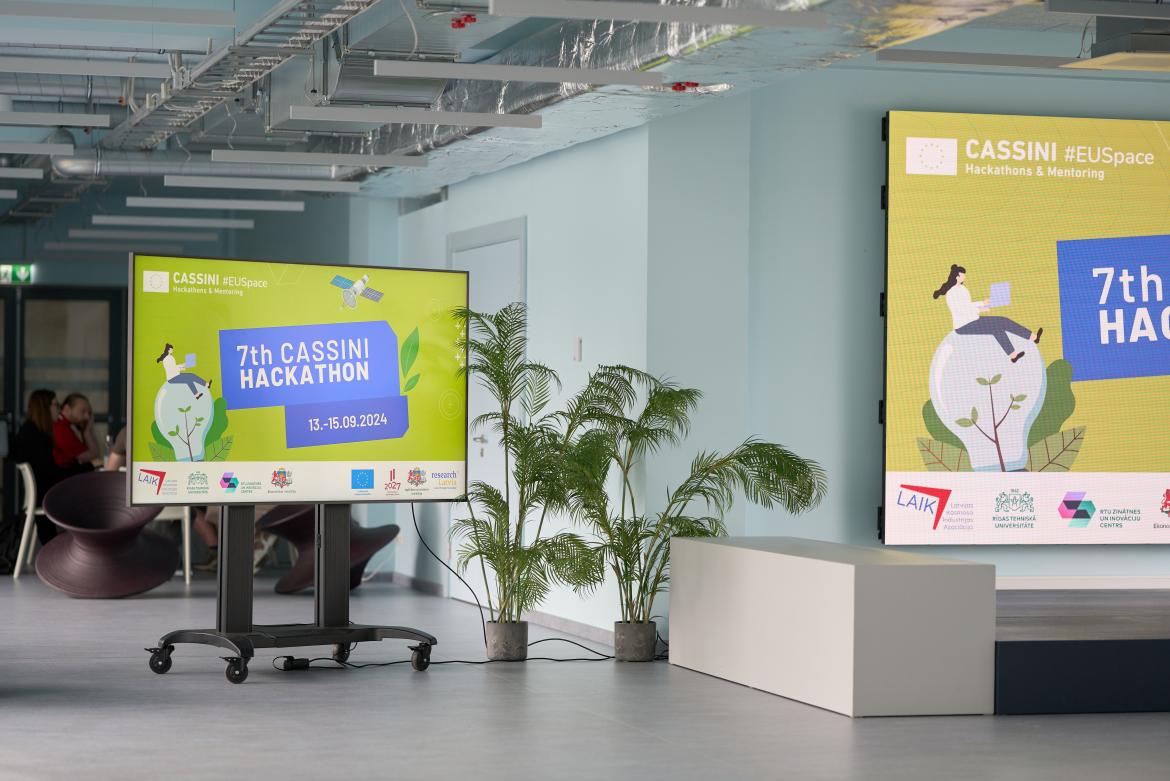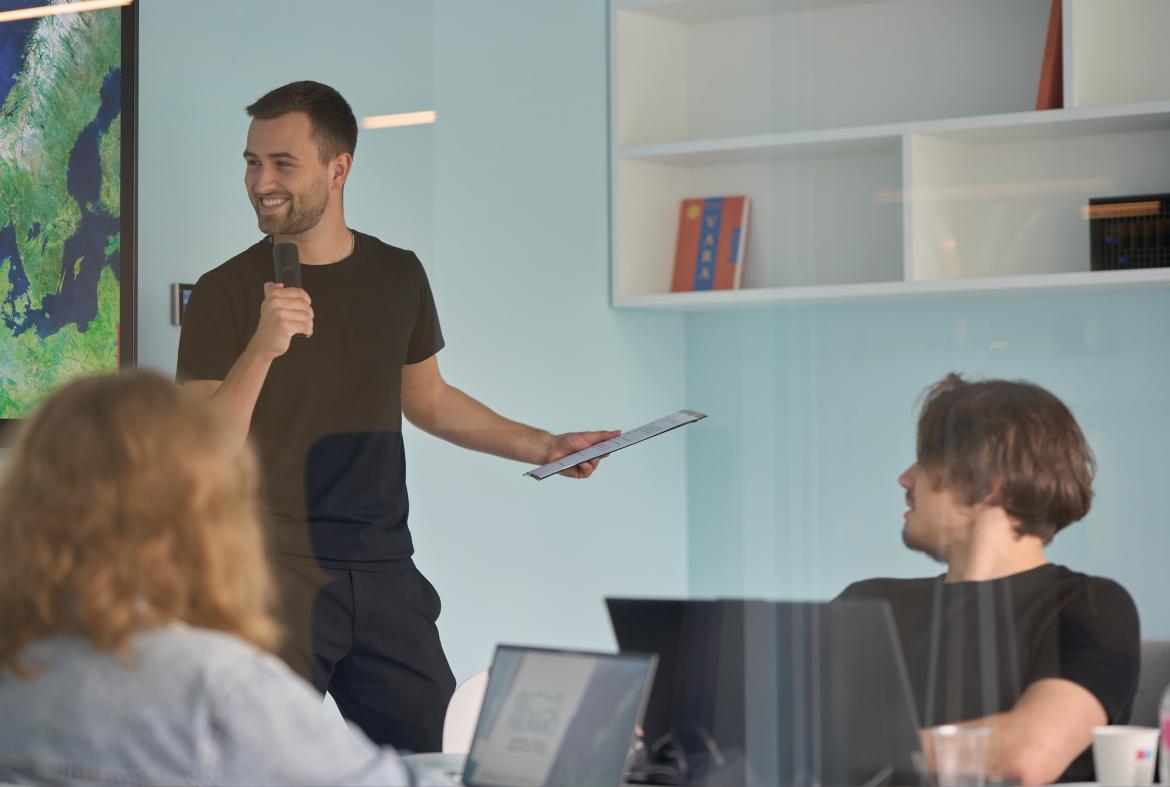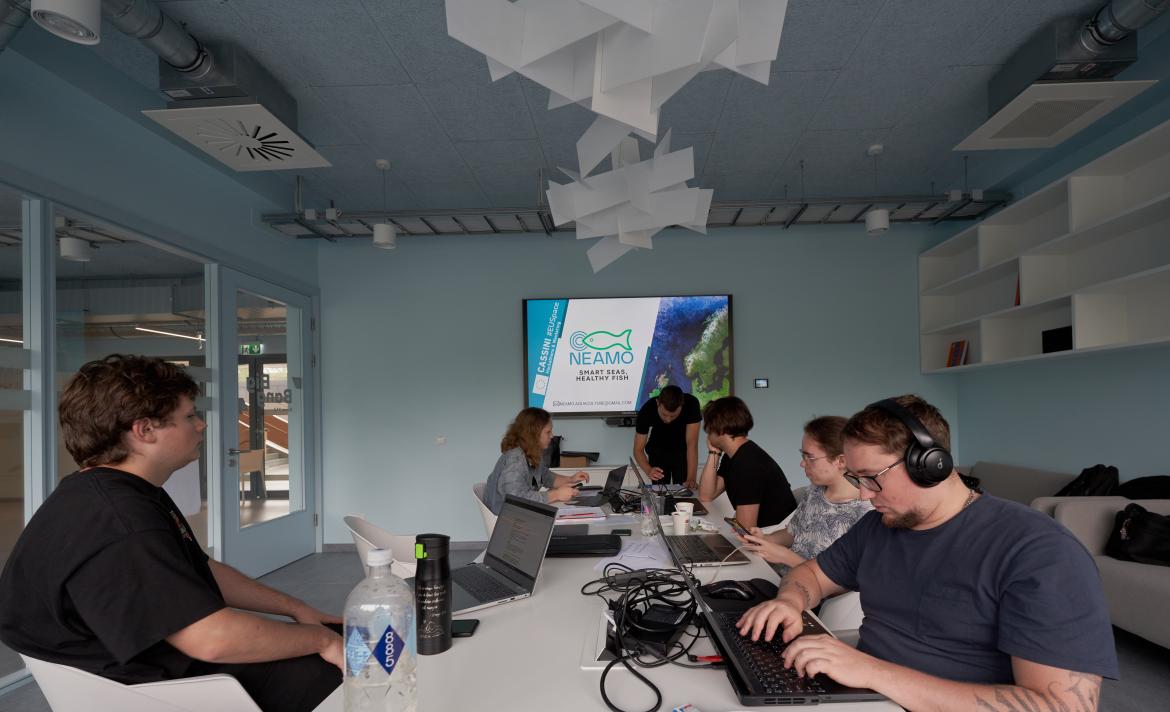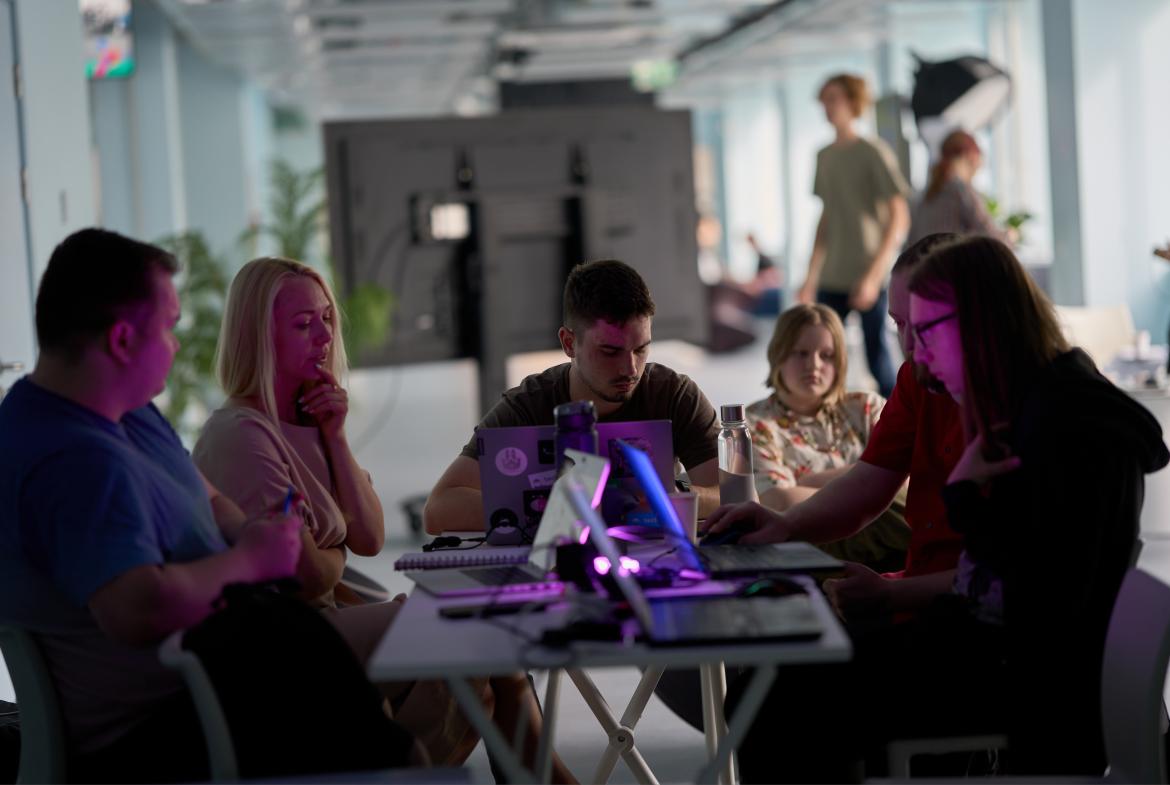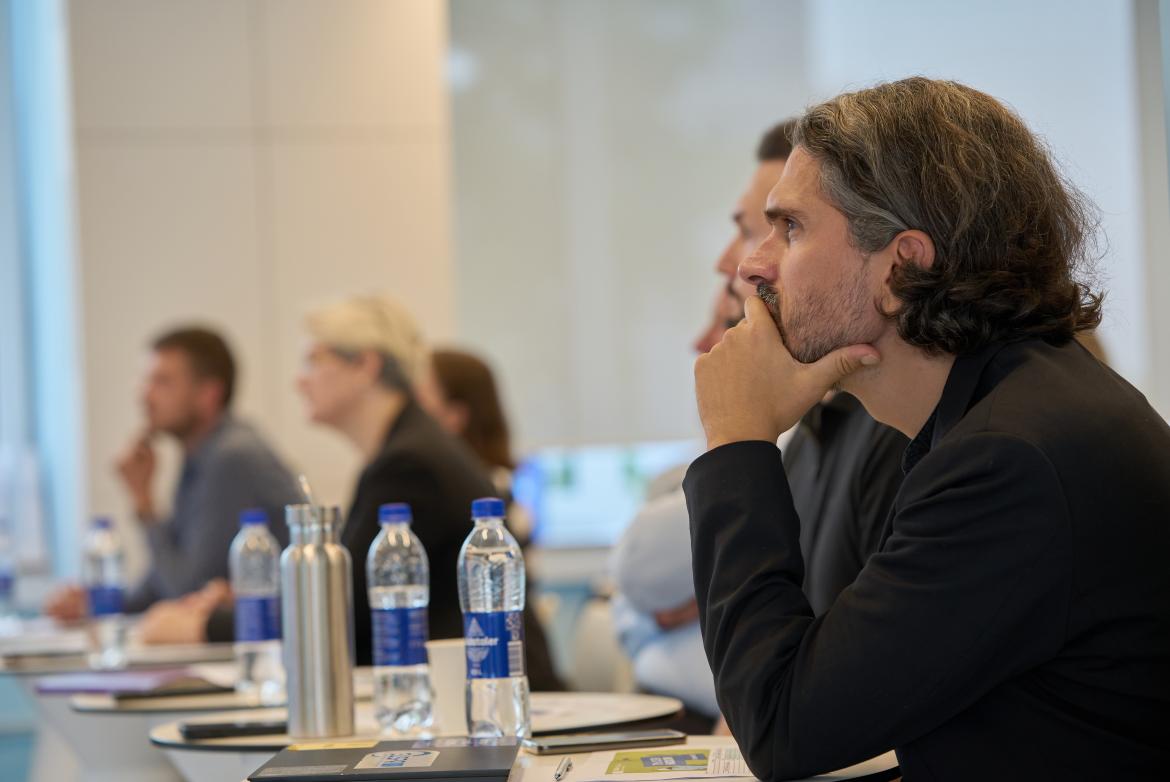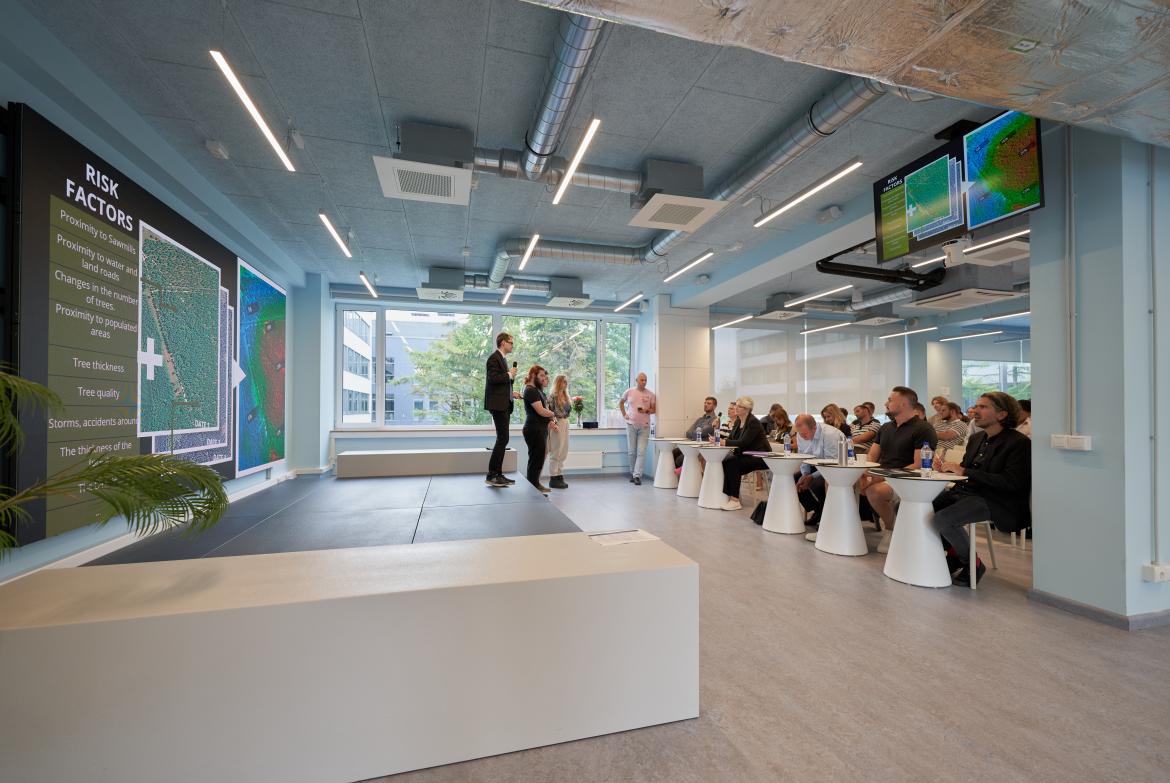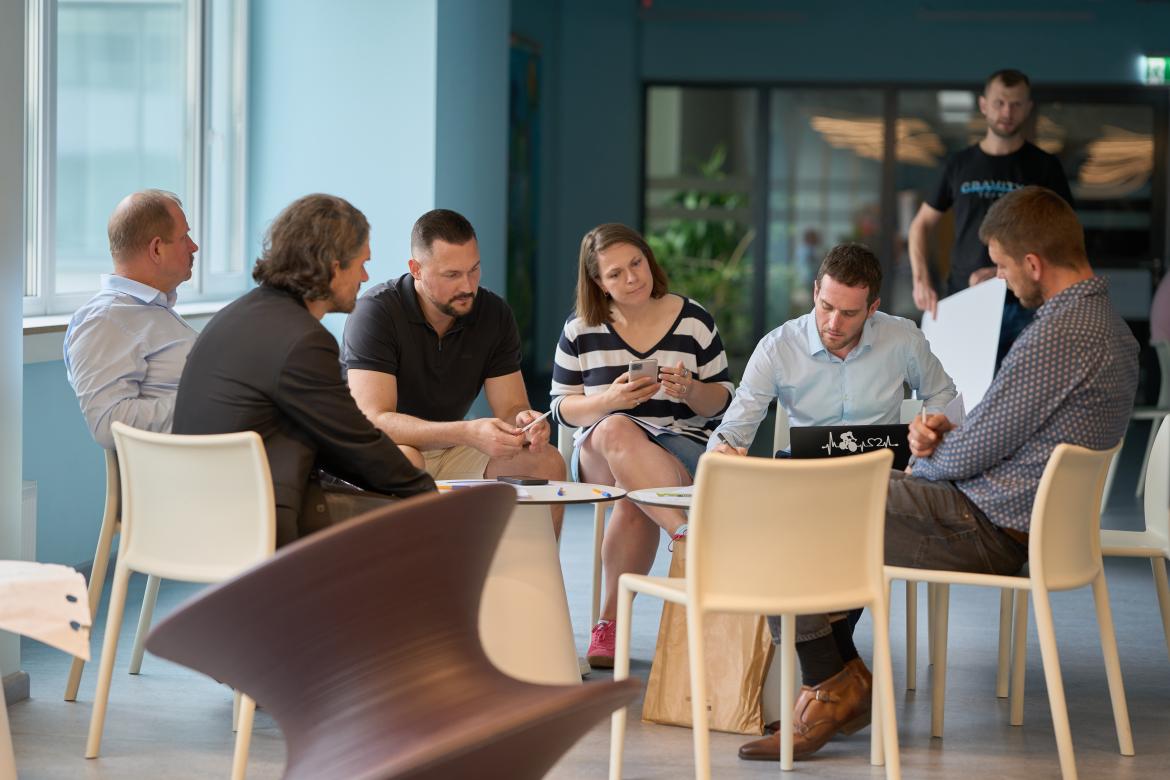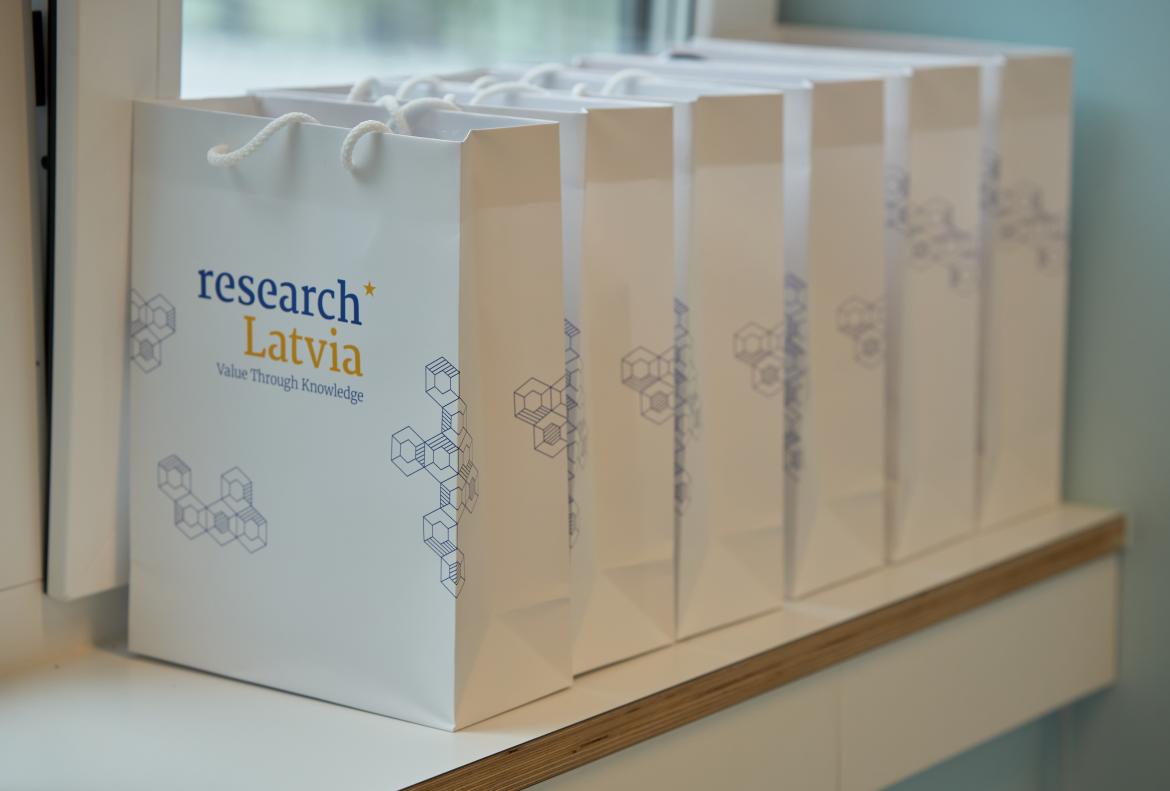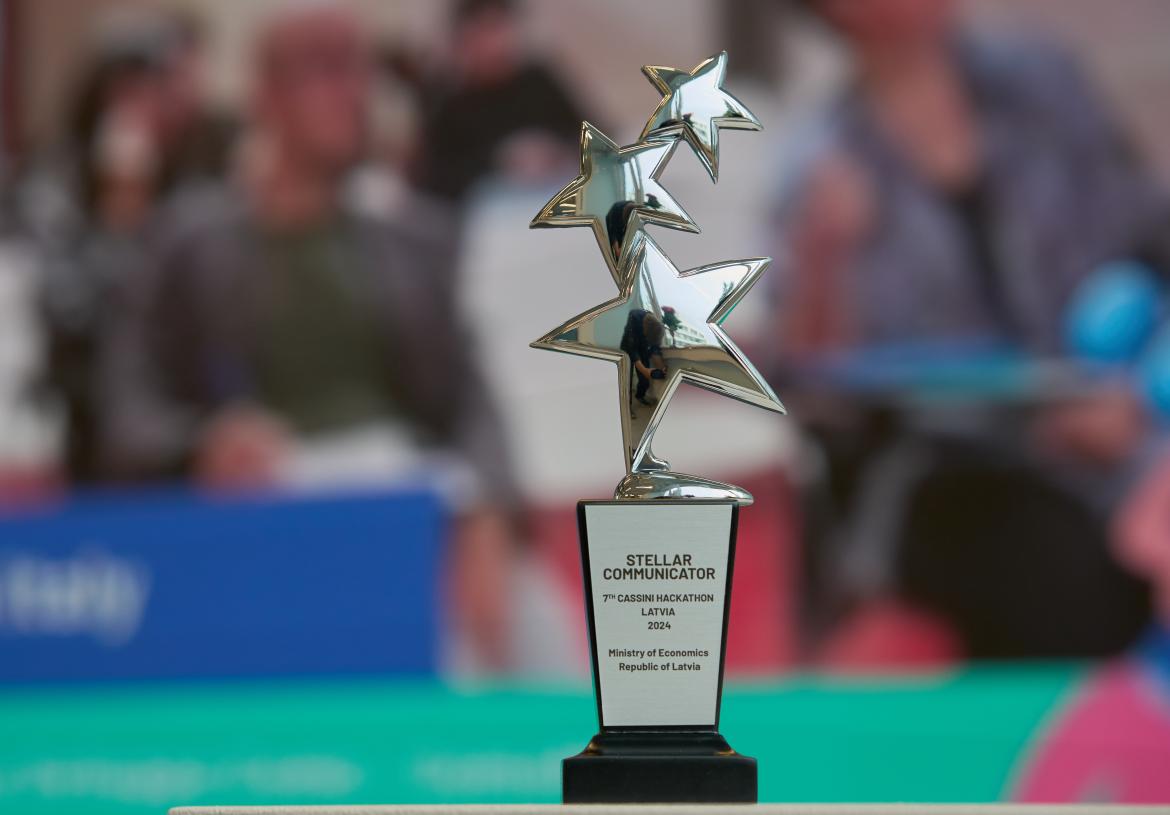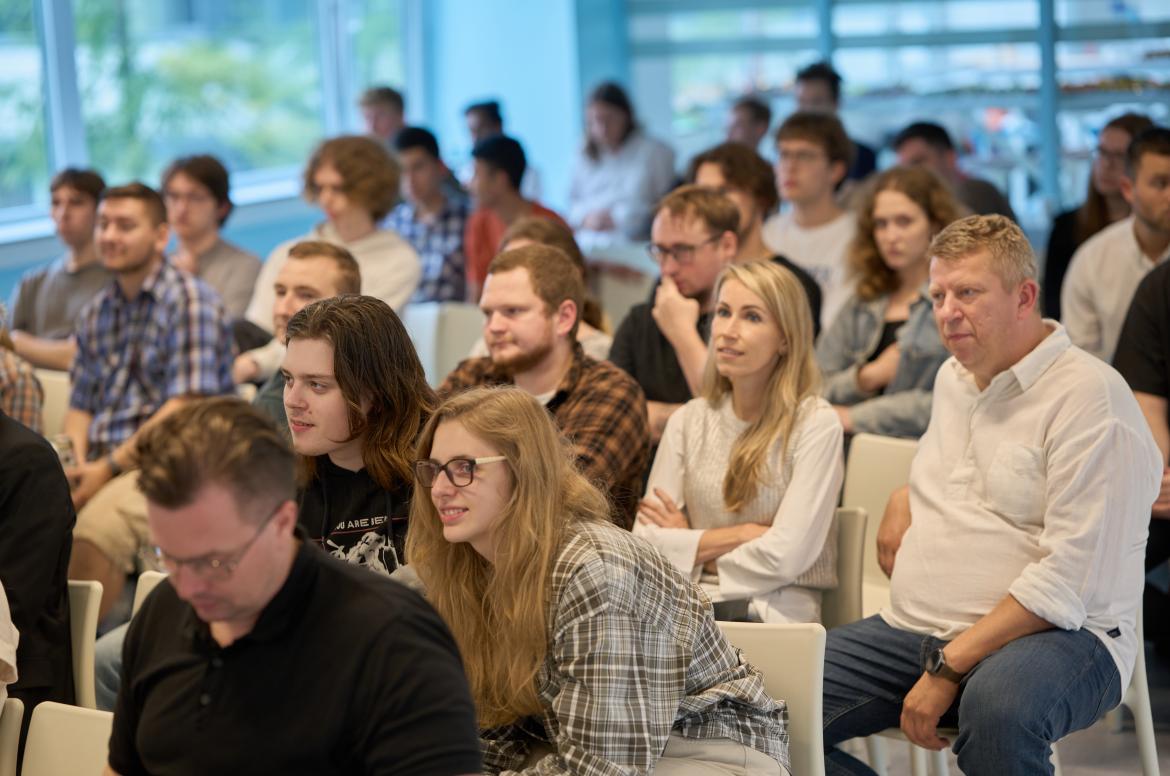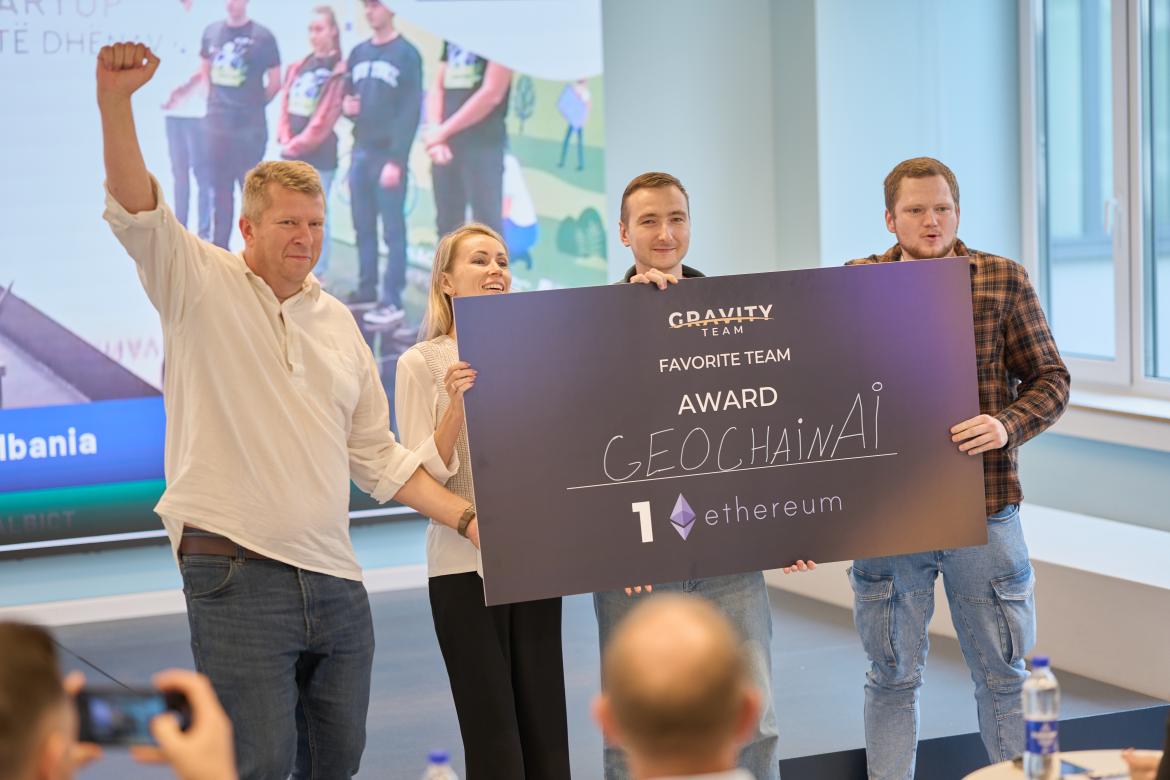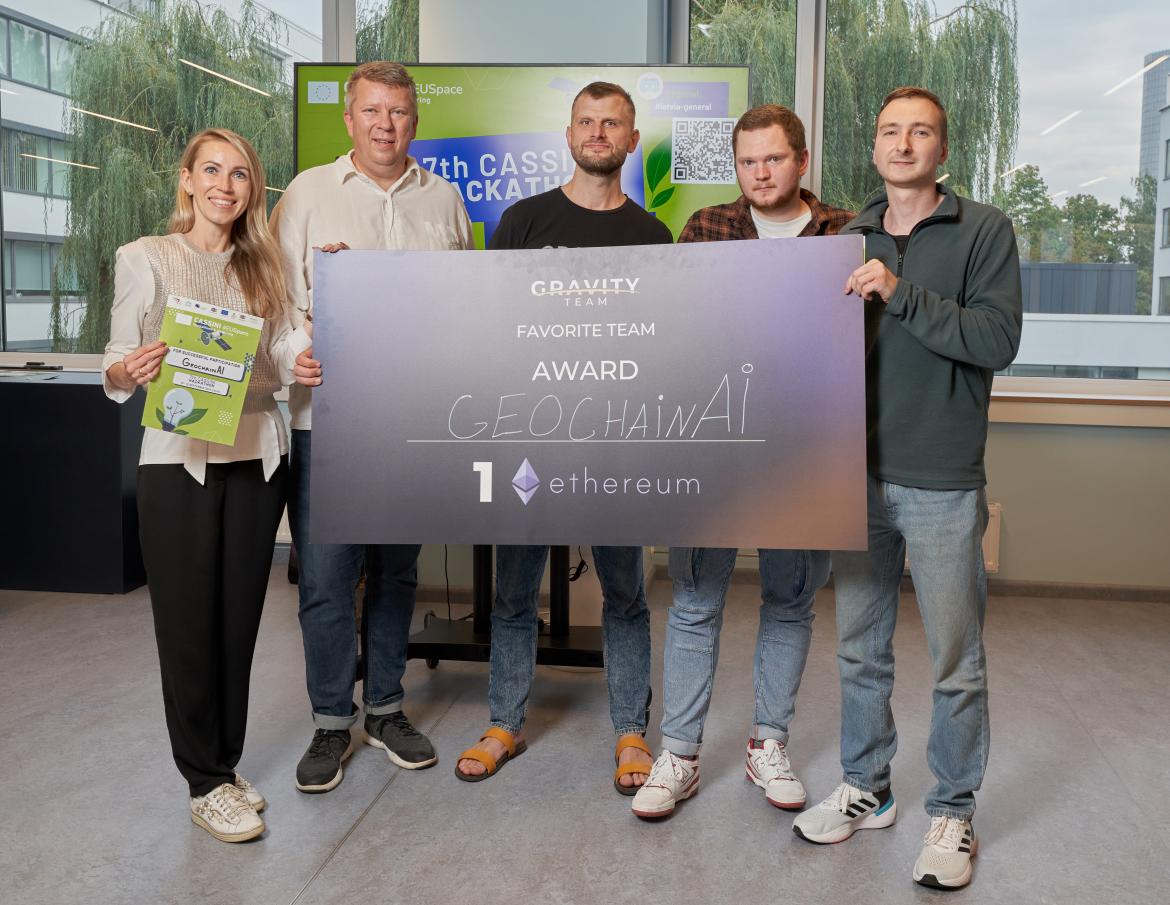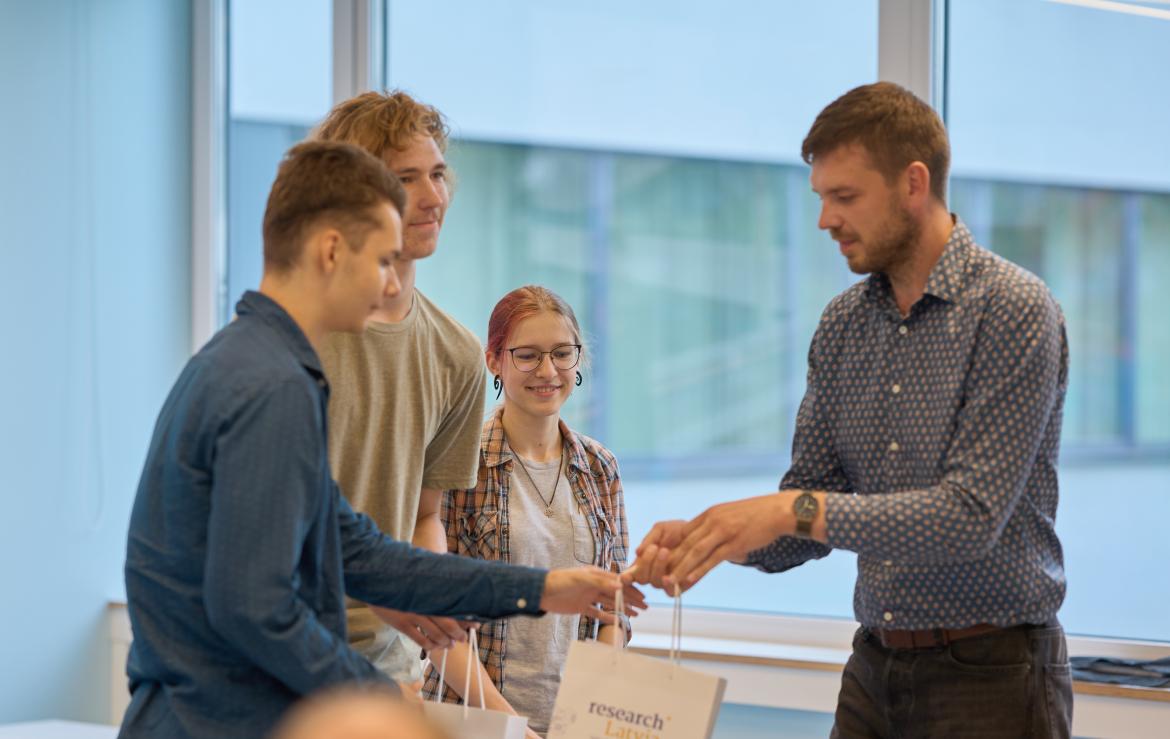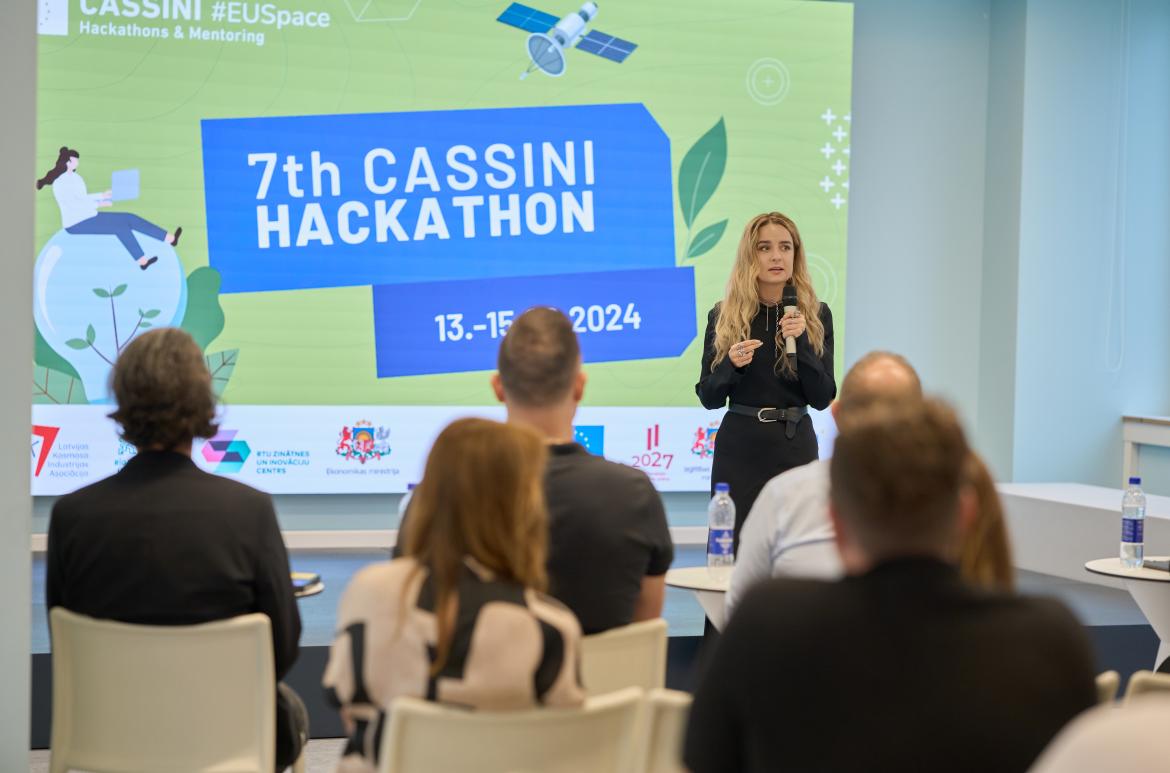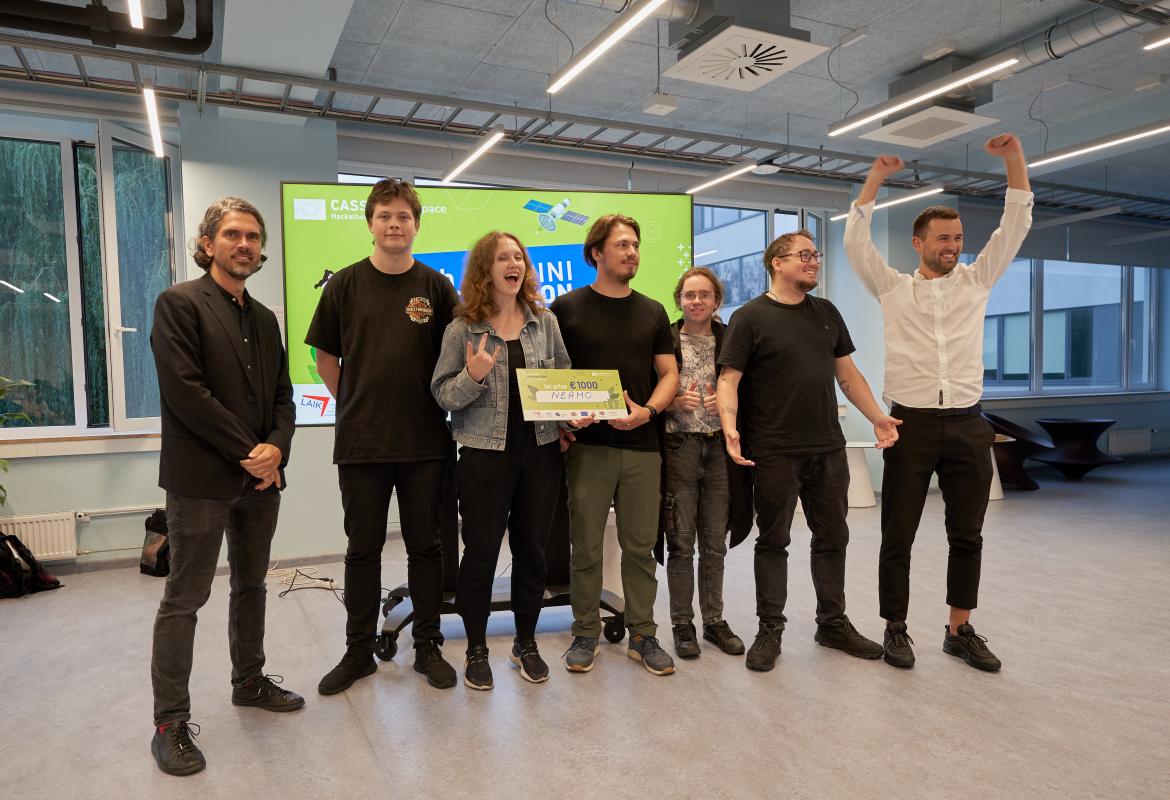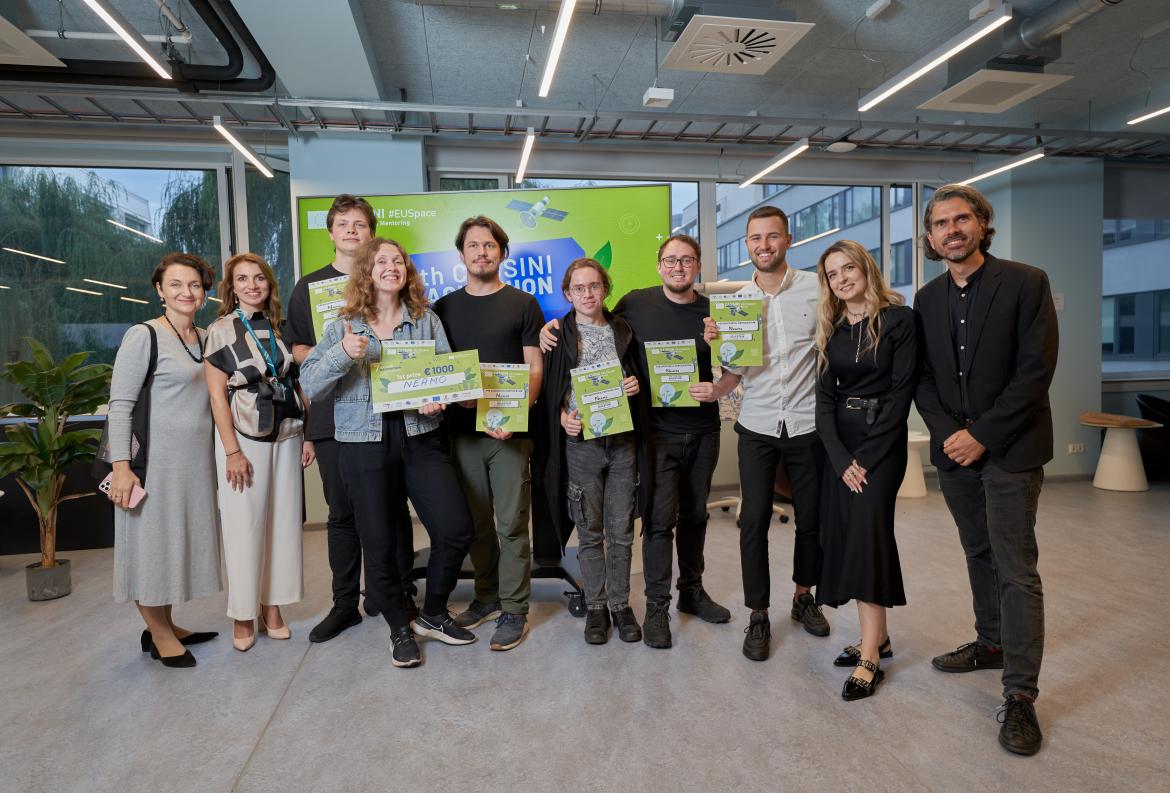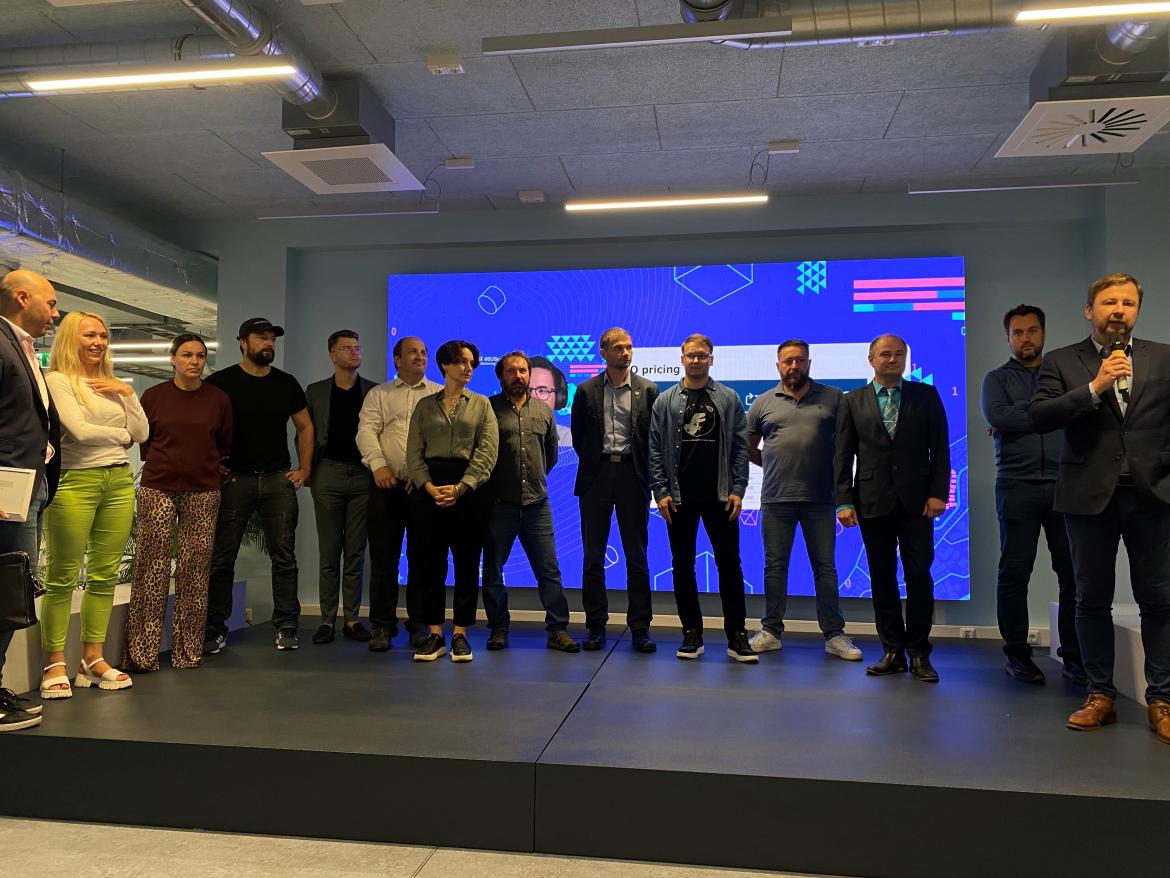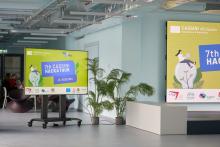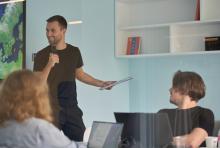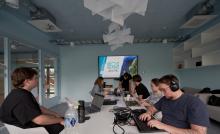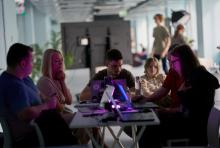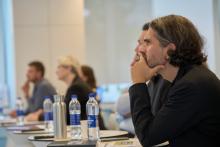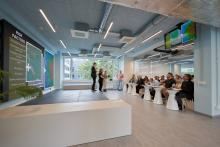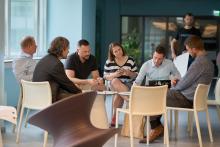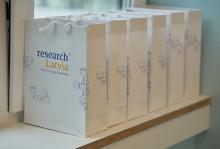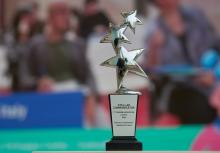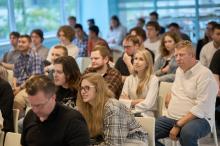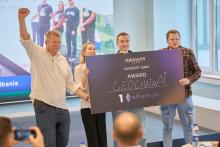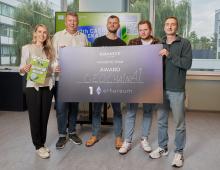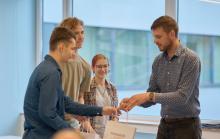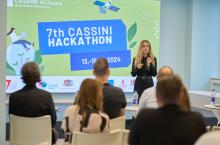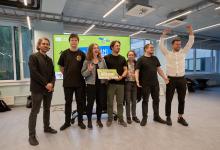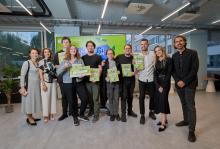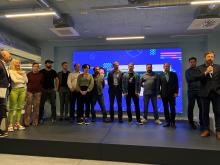On September 18, the final of the 7th CASSINI space hackathon of the European Union (EU) took place, bringing together 10 teams from various European countries, including Latvia. Team "NEAMO," representing Latvia, qualified for the international competition after winning the national selection, presenting their unique solution - using satellite image data for fish disease risk estimation and early detection.
This year, the activity focused on the use of satellite data for the realization of sustainable development business ideas. The three-day hackathon took place simultaneously in 10 European countries, including Latvia, from September 13 to 15. A record number of applications were submitted to participate in the hackathon, i.e., 134 participants from Latvia registered, which was 2-3 times more than in other participating countries. This turnout demonstrated significant interest in the space industry and its potential in Latvia. 11 teams showcased exceptional knowledge and technological innovations.
Stefan Schneider, Space Downstream Entrepreneurship Officer at the European Union Space Programme Agency (EUSPA), attended the national hackathon in Latvia, highlighting the great potential of satellite data for developing commercial products and services. Downstream space solutions refer to using satellite data to create commercial products and services on Earth.
In the national hackathon selection, team "NEAMO" took first place and received a €1,000 prize, securing the opportunity to represent Latvia in the European finals. "NEAMO" presented an innovative approach that could help reduce fish mortality in coastal fish farms, improve resource efficiency, and promote sustainable aquaculture development. The 2nd winners, "EcoSat," received a €700 prize for their solution using satellite imagery, LiDAR data, and environmental insights to assess risks related to trees that could damage infrastructure. In addition, "EcoSat" also won Ministry of Economics’ special award for best presentation and space communication. The 3rd place and a €400 prize went to "LevelUp”, which developed a hydropower plant monitoring system aimed at the most efficient use of renewable water resources. They emphasized that “a drop of water well-spent is a drop of water earned”.
The organizers of the hackathon acknowledged that the excellent ideas developed during the event, especially by "NEAMO" and other teams, demonstrate the interest and capability of Latvian youth to create high-value digital solutions and compete internationally. These factors are crucial for the further development of Latvia’s space industry ecosystem. The proactive involvement of industry professionals as mentors and task definers also demonstrated the sector's unity and openness in sharing expertise.
To ensure the most effective use of new technologies and big data to address local and global challenges, 17 mentors from various fields, including technology, business, and space industry, advised the hackathon participants. Their recommendations helped the teams refine their ideas, adapt them to market needs, and develop practical solutions.
Although the Latvian team did not win at the EU level, both "NEAMO" and other teams have gained valuable contacts and are eager to further develop their hackathon ideas using other startup support tools or incorporating them into their final thesis. The excellent ideas developed during the hackathon serve as proof of Latvian youth's ability to create high-value digital solutions and compete internationally.
The EU 7th CASSINI Hackathon in Latvia was organized by the Latvian Space Industry Association in collaboration with the Riga Technical University Science and Innovation Center, the Ministry of Education and Science, and its science communication platform “researchLatvia”, as well as the Ministry of Economics. Free access to high-resolution satellite data was provided by "Airbus Defense & Space”.
Several partners offered real-world problem scenarios for the hackathon participants to solve, including Riga City Council (civil protection and sustainable living), the Latvian National Peat Society (emission monitoring and trade), “Privātais mežs” (sustainable business in the forest sector), and "Gravity Team" (blockchain technology in satellite data usage).
Team NEAMO’s solution: Using Satellite Image Data for Fish Disease risk Estimation and Early Detection
Idea
NEAMO aims to address the critical problem of disease outbreaks in offshore fish farms, which causes significant financial losses to the aquaculture industry. With seafood consumption expected to double by 2050 and 17% of farmed fish dying from diseases, there is a need for effective monitoring and prevention solutions. Norway's salmon industry, for example, loses €2 billion annually due to fish mortality. NEAMO's solution is an early warning system using satellite data and advanced disease prediction models to help fish farms monitor risks and prevent outbreaks before they cause extensive damage.
EU Space Technologies
NEAMO leverages Copernicus satellite data to track environmental factors such as water temperature, oxygen levels, and wind patterns, which are crucial in predicting disease outbreaks. By integrating this data with fish farm disease outbreak history data, the platform can model disease spread and provide early warnings. The use of EU space technology allows for real-time observation and large-scale monitoring, enabling farms to react swiftly, thus improving fish health and reducing economic losses.
Space for Environment & Green Transition
NEAMO contributes to solving the challenge of environmental sustainability in aquaculture. By reducing fish mortality rates and improving resource efficiency, NEAMO helps prevent the overuse of antibiotics and minimizes harmful practices that can damage marine ecosystems. This aligns with the EU's green transition goals, as it promotes healthier food production systems and supports the development of a sustainable seafood industry that can meet global demand without harming the environment. NEAMO is tackling category 2: sustainable living in the CASSINI hackathon.
The hackathon in Latvia took place as part of the project No. 1.1.1.1/1/24/I/001 “More Efficient Implementation and Management of Latvia's Science Policy”.
